Some Previous Articles in New Politics on Afghanistan
Who’s Buried in the Graveyard of Empires?
By: Gilbert Achcar
August 22, 2021
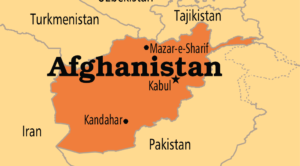 The Afghan government’s fate is but the most recent in a long list of cases of puppet entities created by a foreign occupation that collapse when that occupation ends.
The Afghan government’s fate is but the most recent in a long list of cases of puppet entities created by a foreign occupation that collapse when that occupation ends.
RAWA Responds to the Taliban Takeover
By: Revolutionary Association of the Women of Afghanistan
August 21, 2021
 Afghan Women’s Mission has been in touch with RAWA to address their needs at this urgent time. In this brief Q&A, RAWA explains the unfolding situation on the ground as they see it.
Afghan Women’s Mission has been in touch with RAWA to address their needs at this urgent time. In this brief Q&A, RAWA explains the unfolding situation on the ground as they see it.
Biden to Remove U.S. Troops from Afghanistan
By: Dan La Botz
April 21, 2021
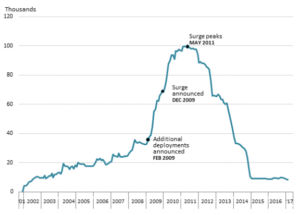 The U.S.-Afghanistan War, which has lasted almost twenty years, has cost the United States 2,300 soldiers’ lives and two trillion dollars, while more than 100,000 Afghans have been killed.
The U.S.-Afghanistan War, which has lasted almost twenty years, has cost the United States 2,300 soldiers’ lives and two trillion dollars, while more than 100,000 Afghans have been killed.
Logic of the Bomb
By: Chris Gardner
May 24, 2017
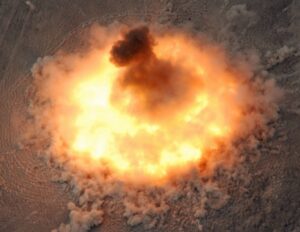 The GBU-43/B Massive Ordnance Air Blast (MOAB) or “Mother of All Bombs” was dropped in Afghanistan at a time of great international tension.
The GBU-43/B Massive Ordnance Air Blast (MOAB) or “Mother of All Bombs” was dropped in Afghanistan at a time of great international tension.
‘Operation Enduring America’
The U.S. in Central Asia After Afghanistan
By: Alan Ruff
December 27, 2013
“As we reassure our partners that our relationships and engagement in Afghanistan will continue after the military transition in 2014, we should underscore that we have long-term strategic interests in the broader region… As the United States enters a new phase of engagement in Afghanistan, we must lay the foundation for a long-term strategy that sustains our security gains and protects U.S. interests…” —US Senator John Kerry, Chair of Senate Foreign Relations Committee, December, 2011.
Drone Dread
By: Laurie Calhoun
New Politics, no. 55, Summer 2013
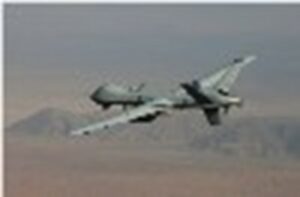 I admire Medea Benjamin, co-founder of the activist group CODE PINK, which has staged anti-war protests and promoted victims’ rights all over the world. Her recently published book, Drone Warfare: Killing by Remote Control, focuses specifically on the relatively new phenomenon in military history of weaponized unmanned aerial vehicles or UAVs, the most common of which is the Predator drone. Having conducted a thorough—and dangerous—fact-finding mission to learn how U.S.
I admire Medea Benjamin, co-founder of the activist group CODE PINK, which has staged anti-war protests and promoted victims’ rights all over the world. Her recently published book, Drone Warfare: Killing by Remote Control, focuses specifically on the relatively new phenomenon in military history of weaponized unmanned aerial vehicles or UAVs, the most common of which is the Predator drone. Having conducted a thorough—and dangerous—fact-finding mission to learn how U.S.
Obama’s Dangerous Escalations
By: Richard Greeman
November 27, 2010
Obama’s decision to radically escalate the wars he was ostensibly elected to terminate is a measure of U.S. imperialism’s desperation. It’s not just that our erstwhile peace candidate and future Nobel peace laureate is withdrawing exhausted U.S. troops from the frying pan of Iraq only to transfer them into the fire of Afghanistan, although that itself was an act of desperation. Many of these “volunteer” soldiers and reservists, shattered after several devastating tours of duty in Iraq, are being forced to remain in the service years beyond their contracts.
Obama’s War/Obama’s Atrocities
By: Stephen R. Shalom
March 27, 2010
Since George Bush launched Operation Enduring Freedom in October 2001 — the unjust, illegal, and unnecessary attack on Afghanistan — there have been constant US and NATO strikes on Afghan civilians, along with constant denials that such strikes have taken place.
We Call for the United States to End Its Wars in Afghanistan and Pakistan!
By: Campaign for Peace and Democracy
New Politics, No. 48, Winter 2010
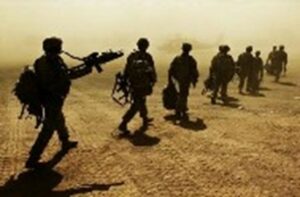 THIS MAY BE A TURNING POINT for the expanding U.S./NATO wars in Afghanistan and Pakistan, a time when speaking out clearly and unambiguously against war can make a crucial difference. Today we see signs all too reminiscent of the step-by-step deepening of the U.S. commitment to the war in Vietnam in the 1960s. In response, we declare ourselves firmly against military escalation in the region and for the withdrawal of all U.S. and NATO forces from Afghanistan and Pakistan now. We also call for an end to drone attacks in both countries.
THIS MAY BE A TURNING POINT for the expanding U.S./NATO wars in Afghanistan and Pakistan, a time when speaking out clearly and unambiguously against war can make a crucial difference. Today we see signs all too reminiscent of the step-by-step deepening of the U.S. commitment to the war in Vietnam in the 1960s. In response, we declare ourselves firmly against military escalation in the region and for the withdrawal of all U.S. and NATO forces from Afghanistan and Pakistan now. We also call for an end to drone attacks in both countries.
Obama Fudges History
By: Stephen R. Shalom
December 2, 2009
In his speech justifying his escalation of the war in Afghanistan, President Obama reminded us why the US was fighting there in the first place. After 9-11, he recalled, the United Nations Security Council “endorsed the use of all necessary steps to respond to the 9/11 attacks.” And then, “only after the Taliban refused to turn over Osama bin Laden,” did the United States send its troops into Afghanistan. This account is doubly wrong.
War in Afghanistan and Pakistan: A critical moment to voice your opposition
By: Thomas Harrison, Joanne Landy
October 9, 2009
The President and Congress are reviewing U.S. policy on the wars in Afghanistan and Pakistan. This is a critical moment. This may be a turning point for the expanding U.S. wars in Afghanistan and Pakistan, a time when speaking out clearly and unambiguously against war can make a crucial difference. We urge you to sign the Campaign for Peace and Democracy emergency statement calling for an end to military intervention in both countries. The statement declares us firmly against military escalation in the region and for the withdrawal of all U.S.
Afghan Rules of Engagement
By: Stephen R. Shalom
June 23, 2009
There’s an AP story today that the U.S. commander in Afghanistan “will soon order U.S. and NATO forces to break away from fights with militants hiding among villagers.” The order is expected to reduce “the use of air strikes, mortars and artillery in villages.” There are three points to note here: 1. The order does not prohibit U.S. troops from using massive force when civilians are nearby if the troops are in “imminent danger,” and indeed, the order allows massive force if necessary to avoid “undue danger” to the troops.
Confronting Terrorism and War
By: Stephen R. Shalom
New Politics, no. 32, Winter 2002
Only a Democratic Foreign Policy Can Combat Terrorism
By: Thomas Harrison
New Politics, no. 32, Winter 2002